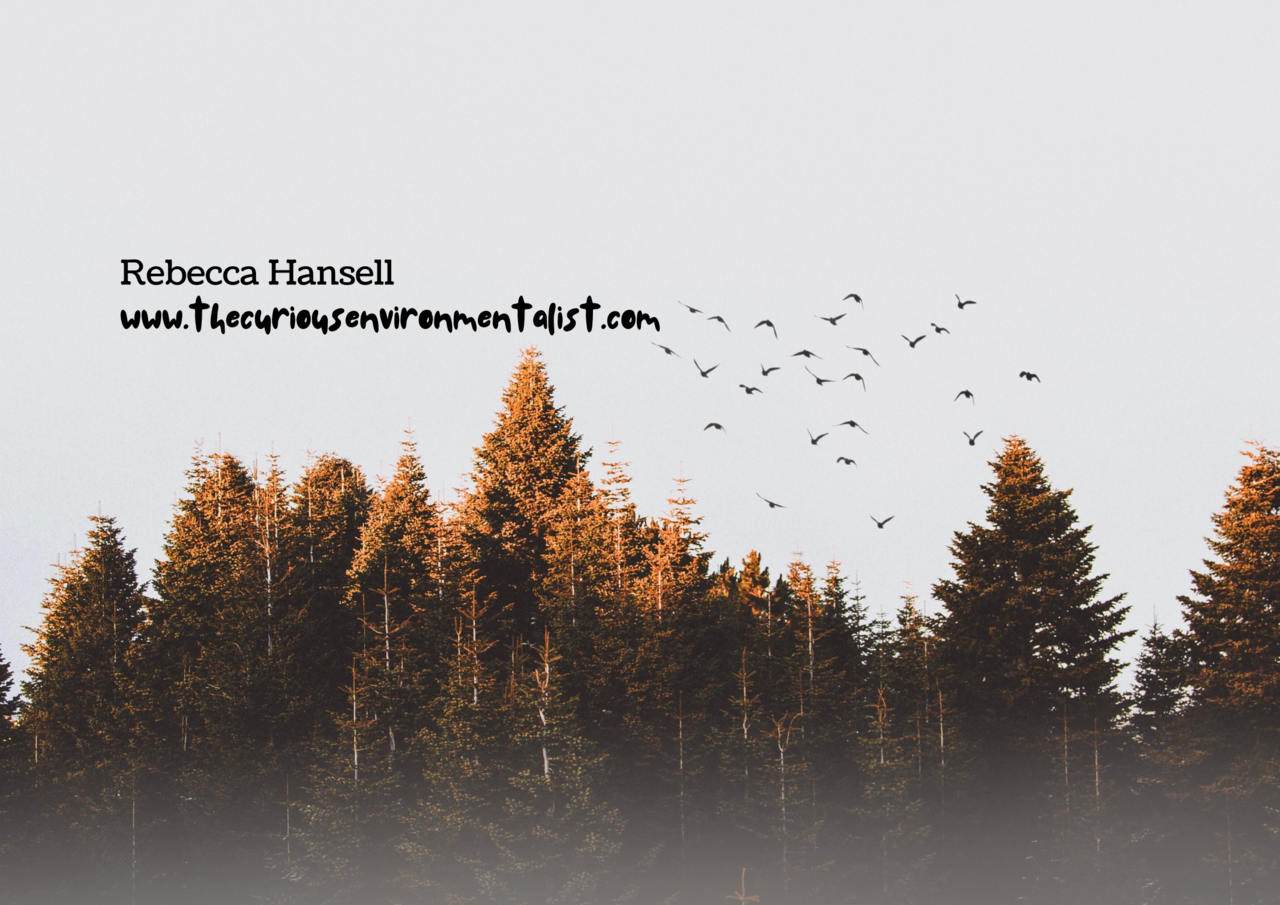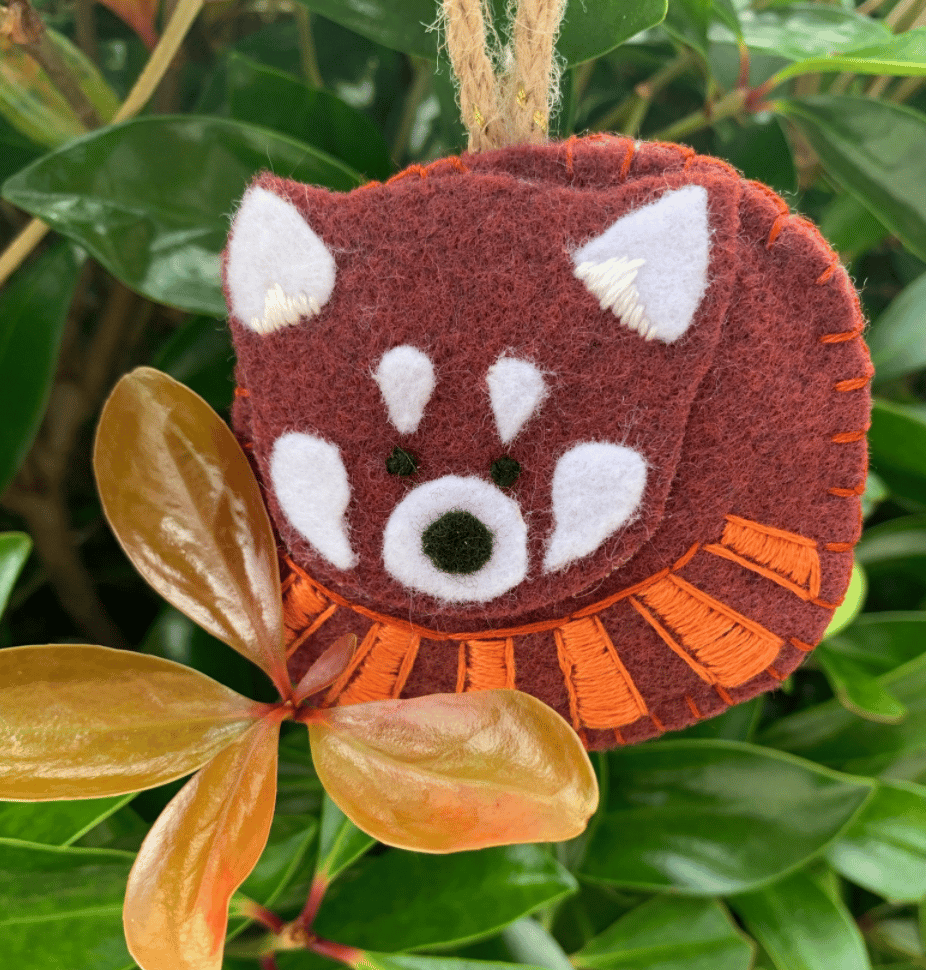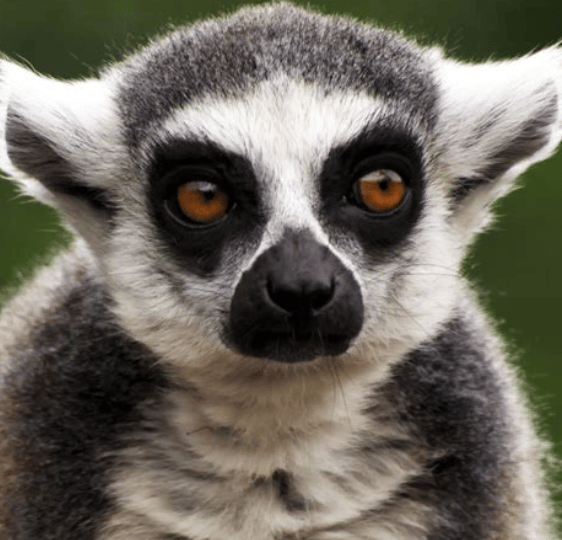Felt Primates & Big Plans.

The more environmental and conservation issues become mainstream, the more we are learning about the varied ways that we can all help the world around us. No matter where our skills lie, there are ways that we can increase awareness and concern for pressing matters. I recently had the privilege to talk with PhD Candidate, Leslie Annette Paige about her work in conservation and how she is embracing her passion for crafts to spread the word about endangered primates.
I asked Leslie a few questions about her career so far, and together, we would like to share the lessons she has learnt so far.
“My first experience in conservation was working at the Georgia Southern Wildlife Center when I was an undergrad student. I always loved animals and I fell in love not only with animal care but also with the educational aspect of conservation. Before the Wildlife Center I did not realise conservation was a ‘job option’, so that experience really opened my eyes. From that point on I targeted my education and work experience towards wildlife.”
Leslie has tried a variety of different roles including some volunteering positions, working with graduate students on their research, within education, animal care, student ambassadorship, events and a number of different internships. However, all these experiences helped her to discover the path she wanted to take in conservation.
“I am currently wrapping up my research for my MSc in Primate Conservation studying red ruffed lemur feeding ecology and preparing to start my PhD in Anthropology studying diademed sifaka and black-and-white ruffed lemurs in a few weeks’ time! In addition to this I also run a project called ‘The Primate Ornament Project’, where I combine my love of crafts and conservation in the form of handmade primate ornaments.”
The Primate Ornament Project is dedicated to raising awareness about threatened primate species one ornament at a time. Each ornament is hand designed, assembled and stitched. Additionally, each ornament comes with information about the species, IUCN status, and threats it faces. This project was created to celebrate Leslie’s love of conservation and crafts by raising awareness about threatened primate species. Please consider supporting this mission!
 Here is the link if you want to browse the current selection: https://www.etsy.com/shop/PrimateOrnaments?ref=search_shop_redirect
Here is the link if you want to browse the current selection: https://www.etsy.com/shop/PrimateOrnaments?ref=search_shop_redirect
“Regarding the Primate Ornament Project, I think the main lesson I have learned is that conservation takes creative solutions. Everyone has something unique to offer, and sometimes you have to think outside of the box and take skills that may not seem relevant to conservation (like sewing) and find a way to integrate them.”
In the future, Leslie hopes to conduct research that informs and better the conservation efforts of endangered species, such as those which inspired The Primate Ornament Project. She hopes to continue this project and use it as a platform to educate the public about the huge array of primate species. One of her main goals, which I find particularly admirable, is to inspire others to engage in conservation in any way that we can.

(Leslie’s favourite animals are lemurs, lorises and tarsiers! But there are loads of wonderful animals on the planet that need and deserve your attention.)
I love the thought and passion behind The Primate Ornament Project, and it is so important to encourage others to use whatever skills they possess to help make the world a better place. Leslie is rightly very proud of her work on this project:
“I think The Primate Ornament Project has been my most impactful independent project. I say this because through that project I have been able to engage with people who are not necessarily in conservation circles, but that are still amazing people who want to help.”
So, what has Leslie learnt from her time in the conservation sector so far?
“Conservation (and life) are full of curveballs. No project is going to go the way you want it to. Projects will always change from your initial idea. I think the key to starting anything is to go ahead and expect feedback and figure out ways to integrate that feedback to continually improve. Another thing is to never get discouraged. It’s okay to temporarily be upset by a setback. But don’t let it affect you so much that you want to quit.”
Personally, I think that Leslie is bang on the money here – I think many of us are guilty of planning everything to the max before we dive in. Taking the plunge into a new project is often the hardest part, so understanding that you can start, then improve and gather feedback as you go, is very freeing. Nobody’s first attempt at something is perfect, so, do the hard, scary thing and just take a chance on yourself! Thanks Leslie, top advice!
Leslie is also focused on the way that environmental issues are closely related to social issues. There are many challenges that need to be faced when looking to make an impact in the conservation sector, both social and environmental, but also in terms of obstacles that are faced by the many who are trying to enter the sector and find their niche. Leslie has experienced this first-hand.
“I think the gap in information for people in conservation is the difficulty of starting out. It is a difficult field to get a foothold in and very competitive. I think that is something that isn’t necessarily conveyed to students. I am not saying that because it is difficult it isn’t worth pursuing, just that students should be made aware of the reality of having to move for jobs and take jobs outside of the field while continuing to apply for conservation jobs! I believe more job counselling at the university level could help address this.”
Similarly, like many of us, Leslie has been impacted by the COVID-19 pandemic, having to cancel 2 years of field research and to lose out on a place on a Master’s programme studying slow loris’. These loses are absolutely heart-breaking, and we can all empathise with the disappointment of missed opportunities over the past couple of years, but Leslie persevered and managed to complete her Master’s remotely from Oxford Brookes University, which was still a life-changing experience. Well done Leslie!
One of the most important things you can do in your career, and also in any aspect of your life, is to acknowledge and learn from what your passion is and what skills you need to develop. Find your inspiration and learn what you need to do to be able to achieve your goals. Leslie spells it out for us.
“What inspires me is simply knowing that there are animals that are at risk of extinction due to human activities. I deeply believe that we, as humans, have an ethical obligation to attempt to reverse the damage we have done. It breaks my heart, but I am also optimistic by all the people working so diligently all over the world…I think something I have going for me is not being afraid to reach out to people. I have had some incredible opportunities (such as a custom internship working with red pandas at the Smithsonian) simply because I was not afraid to reach out to someone who’s research, I really admired and wanted to help with. And I am so grateful for all the people that did grant me the opportunity to gain such experiences.”
So, what can be learnt from Leslie’s experience? So many things. This interview was enlightening and inspiring and it is so vital that we keep sharing our experiences to help pave the way for future conservationists.
Here are some lessons learned:
- Use whatever skills you have to make an impact.
- Don’t be afraid to try new things.
- Think outside the box.
- Be open to change.
- Put yourself out there.
- Find your passion.
- Don’t let obstacles keep you down.
- Do your best.
“As far as weaknesses – I feel like I have a lot! I dive headfirst into projects and get burnt out. I also struggle with feeling like I am never working hard enough or doing enough. But at the end of the day, I always take a deep breath and remind myself that despite those feelings I am doing the best I can.”
And that is all anyone can ask of anyone else. Thank you so much for your time Leslie, keep up your hard work and keep making the world a better place.
----------------
Don't forget to visit Leslie's Etsy shop to support her conservation efforts, and if you want to read more written by me, Rebecca, then follow me on WildHub or visit my website www.thecuriousenvironmentalist.com :)

Please sign in or register for FREE
If you are a registered user on WildHub, please sign in
Thanks for sharing your advice, journey, and conservation-oriented ornaments for sale. The loris, chimp, and orangutan felt ornaments are my favorite.
Hi Rebecca, don't be afraid to try new things. Thanks for sharing great content
Wonderful how Leslie is building on her strengths in her contributions to conservation and found work that energises her. I second her views on life's curveballs and that it's okay to be upset by a setback yet not to get discouraged. Congrats on completing your MSc in primate conservation despite these curveballs, Leslie!
Thank you, Rebecca, for doing such a sterling job in sharing Leslie's lessons learned, promoting her work and inspiring us all. You are making a difference in sharing valuable insights and motivation in our community!
Thanks for sharing! It's an inspirational story.
Thank you so much for this contribution Rebecca and great to hear Leslies story in more detail after seeing the other post on The Primate Ornament Project. It is such an inspiring idea!